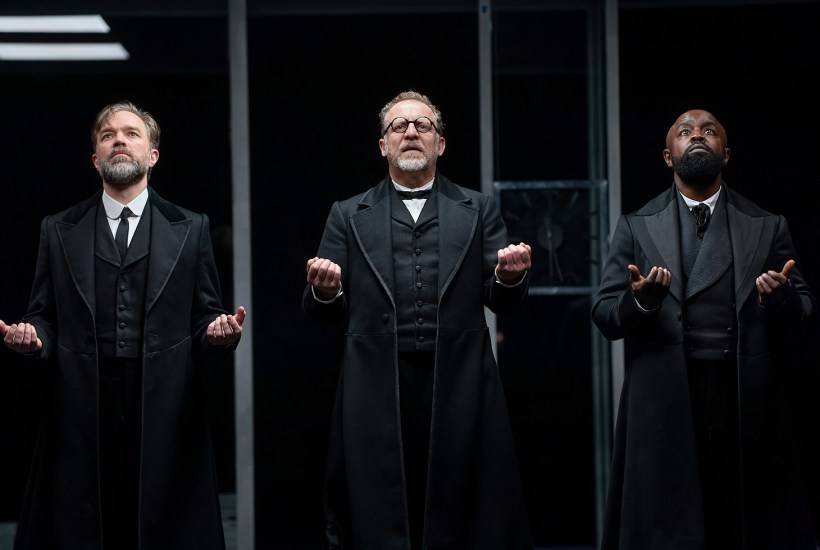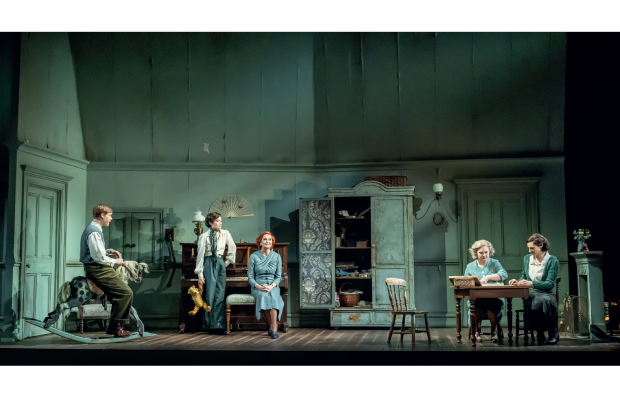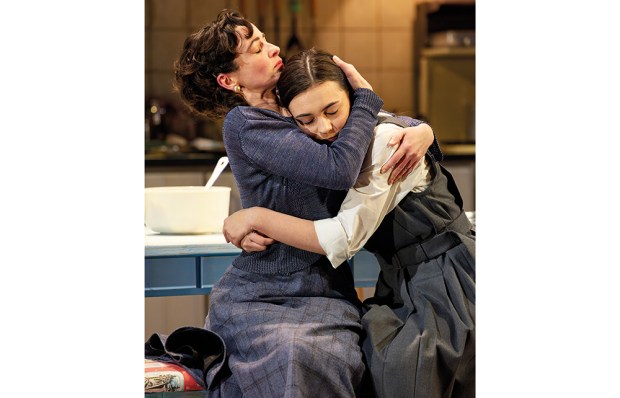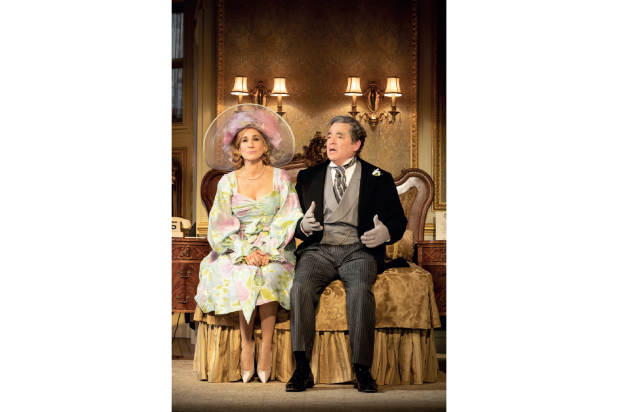Standing at the Sky’s Edge is an ode to a monstrous carbuncle. The atrocity in question is a concrete gulag, Park Hill, built by Sheffield council in the 1960s as a punishment for hard-up locals who couldn’t afford to buy a house. The show is a propaganda effort on behalf of bossy, big-state, high-tax Labour authorities so the smiling residents of the brutalist eyesore keep telling us how much they love their multistorey dungeon. ‘You can see the whole city from up here,’ say the characters, as if no Sheffield resident had ever mounted any of the bluffs or heights that surround the area. The script is honest enough to admit that Park Hill’s secondary purpose is to reduce the city’s population by encouraging depressives to jump from its upper levels. That policy works well, we’re assured.
The script, by Chris Bush, follows three families who occupy the high-rise rabbit hutch over a period of six decades. First, a sex-mad Yorkshire couple who are desperate to have kids. Next, a trio of shrieking Liberian refugees. Finally, an unstable Scottish lesbian who wants to win back her gin-soaked girlfriend. Lovely people, of course, but there’s no reason why London play-goers should give a hoot about any of them. The show belongs up there, not here.
One of the storylines feels like a parody. A black teenage girl is rescued from a racist murder gang by a young white communist who quotes Blake and makes speeches in support of public sector strikes (keenly applauded by the NT crowd). The three sets of flat-dwellers are on stage most of the time, often sitting adjacently at the kitchen table, so it’s hard to know who to look at or where to focus your attention. The scenes are broken up with dull bursts of music thumped out by a crew of instrumentalists and singers on stage. Often the volume is intrusive.
The show has very little narrative direction and the first act culminates in a peculiar riot. It’s a luvvie insurrection. The actors prance and twirl across the stage pretending to fight each other and smash things up. Some of them cavort with dustbins filled with brand-new garbage which they tip out elegantly over the playing area. The movement work is superb but the scene looks like an excerpt from Seven Brides for Seven Brothers rather than an urban uprising. And it’s not clear what event, if any, is being re-enacted. The fake riot is preceded by two recorded statements which bear no relation to the scene or to each other. One is Mrs Thatcher delivering a soundbite in May 1979 and the other is Neil Kinnock speaking in April 1992. This effortful striving for political significance is slightly sad. The real problem is that the show has no core, no proper theme. It tells us that a Labour council once built a concrete pile where the proles could squat and bicker – and that’s about it. This is a mega-budget muddle posing as a state-of-the-nation musical. Three hours of tripe.
The Lehman Trilogy continues to escape cancel culture. Which is amazing. The show celebrates predator capitalism and the expanding grip of the patriarchy as it exploits stolen land and slave labour in America’s deep south. This harsh fact is concealed by the costume design. The three Lehman brothers narrate their tale standing in black Victorian frock coats that look quaint, solemn and harmless. That sends a message. This is ancient history. The same half-truth is asserted in the opening lines, which remind us that the firm crashed and burned in 2008, and the show manages to present itself as a lament for a vanquished and discredited system. Clever positioning.
We meet the firm’s founder, Chaim Lehman, as he disembarks in New York after crossing the Atlantic. Enraptured by America, he fizzes with hope, innocence and ambition and we’re desperate for him to succeed. He opens a little fabric store in Montgomery, Alabama, but he’s eager to expand into the more lucrative business of agricultural hardware. How can he do it? Disaster rescues him. Wildfires leave the cotton crop in ashes so he lends money to farmers in return for a chunk of next year’s harvest. It works. Soon he’s driving wagon-loads of raw cotton across the country, trading up and making a fortune. ‘I’m a middleman,’ he boasts, using a term loathed by Marxists to mean a parasite who creates nothing but profit. But the viewer scarcely notices this because of the script’s fairy-tale sweetness and the constant repetition of soothing refrains and familiar gestures. The Lehman brothers return every year to the humble Alabama store where they kiss the mezuzah and push open ‘the door that always sticks’. It’s utterly beguiling. The Lehman Trilogy is a miracle of charm. And a miracle of escapology.
Got something to add? Join the discussion and comment below.
Get 10 issues for just $10
Subscribe to The Spectator Australia today for the next 10 magazine issues, plus full online access, for just $10.
You might disagree with half of it, but you’ll enjoy reading all of it. Try your first month for free, then just $2 a week for the remainder of your first year.














Comments
Don't miss out
Join the conversation with other Spectator Australia readers. Subscribe to leave a comment.
SUBSCRIBEAlready a subscriber? Log in